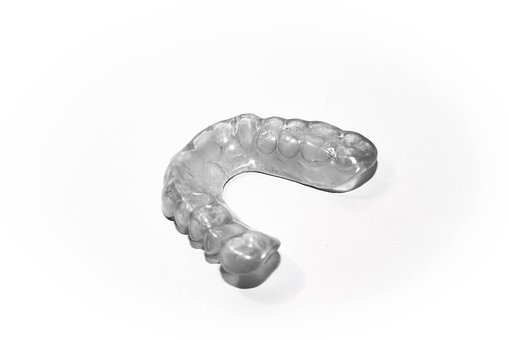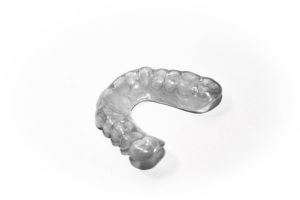
If you experience pain in your neck and jaw area, a clicking or popping noise when you open or close your mouth, or a limited range of motion in your jaw, you might be dealing with a temporomandibular joint (TMJ) disorder. Your jaw pain (and the many other conditions that result from TMJ Disorder) may be the result of bruxism, hyperactive muscle, malocclusion of teeth…
A person’s stress level or stress response has wide-ranging health impacts. Some of these impacts can have serious consequences, teeth grinding is a stress consequence

The guard is usually worn on the upper teeth, and creates a barrier that prevents them from meeting the lower teeth. You can’t grind teeth that don’t touch. It acts as a protective barrier between the upper and lower teeth.
The mouth guards used for treating TMJ disorders are always made of rigid acrylic material. Also called a splint, these mouth guards help to raise the bite and reposition the jaw in a position that helps relieve the patient of any symptoms and discomfort. Due to the precise nature of a TMJ splint, the dentist may need to make multiple adjustments in order to achieve the perfect position.
There are many different options that a TMD dentist will consider when recommending and fitting a device and it is very important to have a professional assessment as a poorly fitted device may cause additional damage to the TMJ and aggravate the TMJ disorder.




